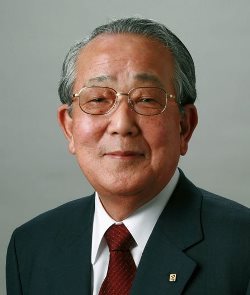Kyoto Prizes. Биболетова 10 класс перевод текста
Биболетова 10 класс перевод текста (“Enjoy English”, Unit 3, Section 2, ex. 80, 81, page 111-112)
Ex. 80 Read the text and answer the following questions. Прочитай текст и ответь на вопросы.
1. What is the purpose of the Kyoto Prize? Какова цель Премии Киото?
2. Who is the founder of the prize? What do we know about him? Кто является основателем премии? Что мы знаем о нем?
3. How many people have been awarded the prize? Who are they? Сколько человек были удостоены премии? Кто они?
4. How does the founder of the prize explain the idea behind it? Как основатель премии объясняет ее идею?
5. Who were the prize laureates in 2001? What achievement did they get the prize for? Кто были Лауреатами премии в 2001 году? За какие достижения они были удостоены премии?
Kyoto Prizes to further stress “moral” achievements
The Kyoto Prize is Japans equivalent of the Nobel Prize. The awards are given to individuals or groups who have made “significant contributions to the progress of science, the development of civilisation, and the enrichment and elevation of the human spirit.” The sponsor of the Prizes is the Inamori Foundation, founded in 1984 by Kazuo Inamori, a successful businessman in ceramics and electronics. The prize is similar to the Nobel Prize, but more inclusive as it acknowledges Arts and Philosophy, as well as Advanced Technology and Basic Science. Unlike the Nobel Prize, however, it is never given to corporations.
Every November, three winners of the Kyoto Prizes receive a diploma, a gold watch and 50 million yen. The prizes are given to scientists, philosophers and even filmmakers. In 2001, the Russian laureate, Zhores Ivanovich Alferov, won the Kyoto Prize for Advanced Technology for his work with semiconductor lasers at room temperature. He developed an efficient low cost technology that improves communication equipment from fibreoptic networks to personal DVD players. In 2006, the Prize for Arts and Philosophy went to the fashion designer, Issey Miyake, for “creating clothing that can become a part of peoples lives, cutting across time, national borders, and classes.”
Inamori has criticised modern culture for ignoring our emotional and spiritual development and feels that more recognition should be given to those who work for the common good. “Today we are rushing ahead with incredible scientific and technological achievements, while understanding of our emotional and psychological development lags behind badly,” he says. “It is my hope that the Kyoto Prizes will encourage balanced development of both our scientific and our spiritual sides”.
Inamori worries that people are losing their old models of morality and ethics based on religion. But he believes that if we use our intelligence properly, we can create a new way of thinking, one that does not add to human suffering. He has now given the Inamori Foundation 70 billion Yen, which he hopes will help to recognise people who contribute to this process.
Премия Киото, чтобы подчеркнуть дальнейшие «моральные» достижения
Премия Киото является японским эквивалентом Нобелевской премии. Награды вручаются отдельным лицам или группам, которые сделали «значительный вклад в развитие науки, развитие цивилизации, и обогащения и возвышения человеческого духа». Спонсором премии является Фонд Инамори, основанный в 1984 году Кадзуо Инамори, успешным бизнесменом в керамике и электроники. Премия похожа на Нобелевскую премию, но является более обширной, так как признает искусство и философию, а также передовые технологии и фундаментальную науку. Однако, в отличие от Нобелевской премии, она никогда не присуждается корпорациям.
Каждый год в ноябре, три победителя премии Киото получают диплом, золотые часы и 50 миллионов йен. Премия дается ученым, философам и даже режиссерам. В 2001 году русский лауреат Жорес Иванович Алферов, получил премию Киото за передовую технологию в работе с полупроводниковыми лазерами при комнатной температуре. Он разработал эффективную недорогую технологию, которая улучшает связь волоконно-оптических сетей и персональных DVD-плееров. В 2006 году премию по искусству и философии получил модельер, Иссей Миякэ, за «создания одежды, которая может стать, частью жизни людей, пересекая время, национальные границы и классы».
Инамори раскритиковал современную культуру за игнорирование нашего эмоционального и духовного развития и чувствует, что больше признания следует давать тем, кто работает на общее благо. «Сегодня мы мчимся вперед с невероятными научно-техническими достижениями, в то время, как понимание нашего эмоционального и психологического развития остается позади», говорит он. «Я надеюсь, что Премия Киото будет способствовать сбалансированному развитию как научной, так и духовной стороны».
Инамори беспокоится, что люди теряют свои старые модели морали и этики основанные на религии . Но он считает, что если мы используем наш разум должным образом, мы можем создать новый способ мышления, тот, который не добавит человеческих страданий.
В настоящее время он отдал Фонду Инамори 70 миллиардов иен, которые, как он надеется, поможет признать людей, которые вносят вклад в этот процесс.
Ex.81 Write down the following expressions and translate them into Russian.
a) to recognise significant world achievements — признавать значительные мировые достижения
b) to honour individuals and groups — оказывать честь отдельным личностям и группам людей
c) to further humanity through a balance of technology and spirituality — продвигать человечество вперед
d) to emphasise moral and spiritual contribution — подчеркивать моральный и духовный вклад
e) to work for the common good — работать на всеобщее благо
f) to rush ahead with incredible achievement- нестись вперед с невероятными достижениями
g) to encourage a balanced development of both scientific and spiritual sides — поощрять сбалансированное развитие как научной, так и духовной стороны
h) dramatic advances in science and technology — решающие успехи в науке и технологии
i) to abandon the old model of morality and ethics — отвергнуть старую модель морали и этики
j) to be central to modern life — играть центральную роль в современной жизни
